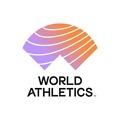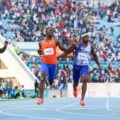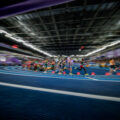The IAAF’s long-term storage and retesting strategy concerning IAAF Championships which began in 2005 with the storage of anti-doping samples from that year’s IAAF World Championships in Helsinki has led to disciplinary action being commenced against a further 28 athletes following a second reanalysis.
In 2012, the IAAF conducted a first round of re-analysis of urine samples taken at the Helsinki World Championships which had been proactively stored by the IAAF at the Swiss Laboratory for Doping Analyses (LAD), the WADA-accredited laboratory in Lausanne, in anticipation of new scientific developments.
This strategy first revealed six adverse findings from Helsinki which were announced in March 2013 and to date 9 athletes have been sanctioned following re-testing of samples from various world championships.
Beginning in April 2015, using the latest technology available in the field of anti-doping and taking advantage of the new World Anti-Doping Code’s provision extending from 8 to 10 years the period during which samples can be tested, the IAAF made a second reanalysis of Helsinki 2005 and Osaka 2007 samples.
This reanalysis has confirmed a further 28 athletes with 32 adverse findings. Due to the legal process, none of these athletes can be named yet.
A large majority of the 28 are retired, some are athletes who have already been sanctioned, and only very few remain active in sport. The IAAF is provisionally suspending them and can confirm that none of the athletes concerned will be competing in Beijing.
The IAAF embarked on this long-term storage and retesting strategy in 2005 to ensure that clean athletes are ultimately rewarded for their honest efforts in IAAF competitions.
The IAAF is committed to use every means at its disposal within the World Anti-Doping Code to root out the cheats, however long it takes.
Martial Saugy, Associate Professor, PhD, Life Sciences, and Director of LAD commented:
“The latest scientific breakthroughs in anti-doping technology and analysis have been employed in the reanalysis of these samples to allow us to find previously undetectable substances.
“We are at the cutting edge of the fight against doping. In our 10-year partnership with the IAAF we have been using every scientific advance and legal opportunity at our disposal to catch the cheats.
“The IAAF and the IOC, working in cooperation with the LAD, clearly showed the way 10 years ago and other anti-doping organisations and sport federations, on WADA’s recommendation, are now considering or have started implementing such a retesting policy.”
Meet The Authors
World Athletics (formerly the International Association of Athletics Federations - IAAF) is the international governing body for the sport of athletics, such as running, jumping and throwing.








